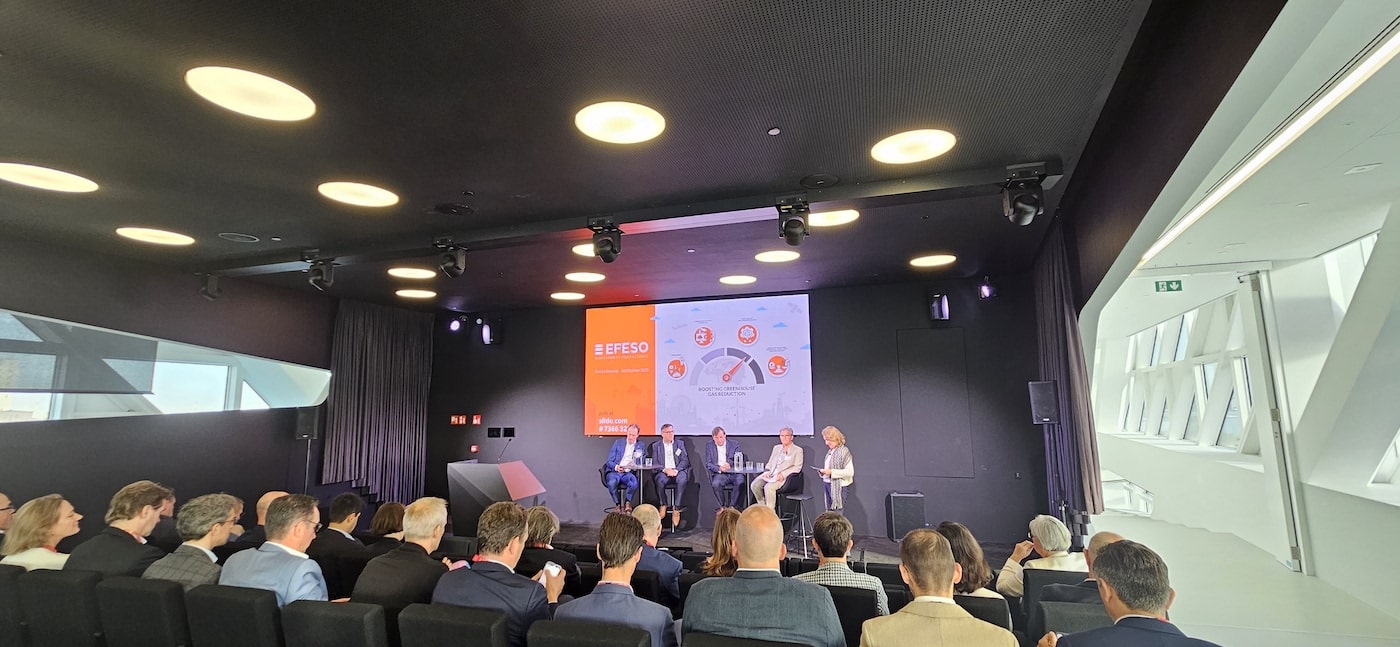
Marcia de Troyer
Partner


On October 6th, EFESO hosted an insightful executive event around the theme of greenhouse gas reduction. It served as a dynamic forum for industry key players to address solutions to implementing sustainable, long-term strategies within the challenging context of Europe's ambitious sustainability agenda.

Gathered under the roof of Europe’s sustainable lighthouse port at the Port of Antwerp-Bruges, leaders from diverse sectors engaged in deep discussions on their individual journeys towards sustainability, exploring pragmatic solutions to meet ESG ambitions and sharing both concrete achievements and aspirational visions.
The panel discussion featured Jacques Vandermeiren, CEO Port of Antwerp-Bruges, Veerle Slenders, EVP at Umicore Recycling, Christoph Balzarek, EVP at OQ Chemicals and Bernard Delvaux, CEO at ETEX Group. We took a step further and a deeper dive into specific sustainable topics through four enlightening roundtables:
The roundtable focused on a pragmatic example from ETEX. Through a partnership of three parties and technological innovation, it was possible for ETEX to move from down-cycling to recycling, and evolve to a profitable business model for the three business parties. This case has been preselected to be presented on the World Economic Forum of Davos 2023. The discussion went on:
The participants gathered some conclusions:
Access to recycled feedstock and to the technological recycling solution: To partner up with companies that have a deep knowledge of the local ‘waste market’.
This roundtable focused on a concrete illustration from a leading industrial group in the process industry realizing a company-wide Energy Efficiency and CO2 savings program. Initially a CO2 reduction context but external crisis brought the need for acceleration and support from outside to tackle 40 sites.
The discussions were on:
Key takeaways:
Industrial companies all have ambitious targets to reduce GHG emissions and/or to increase Energy Efficiency. Yet the challenge for the companies is to create the “conditions for success” in the field, needed to realize their ambitious objectives.
Four critical conditions have been identified and ideas were brought forward to dealing with them.
Capital expenditures become increasingly relevant for carbon footprint optimization, as such proper methods and tools taking cost and greenhouse gas aspects into consideration become crucial for decision making.
The discussions were on:
The participants gathered some key takeaways:
The discussion during this roundtable was launched through the story of OQ Chemicals, which has set itself the goal of reducing its greenhouse gas emissions by 30 percent by 2030.
Some key strategies gathered with the participants were:
As we reflect on the discussions, conclusions and practical insights shared during this event, we are energized to forge ahead our collective mission towards a more sustainable future. These experiences remind us that by embracing collaboration, innovation, and a strong commitment to change, we can make sustainability happen, together!
